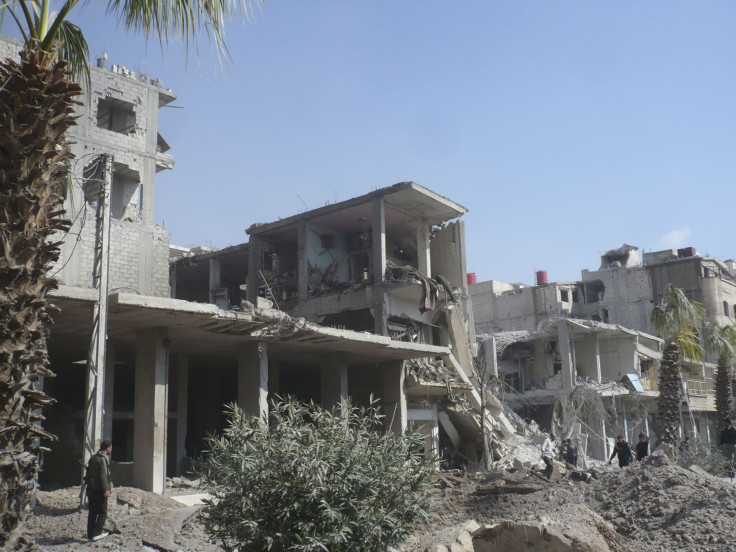Syrian Cease-fire Shattered By Car Bombs, Shelling And Airstrikes

The Syrian Army continues to battle opposition forces despite a cease-fire that began Friday as more than 150 people were killed in the first 24 hours of what was supposed to be a cessation in fighting.
Fighting broke out in Damascus shortly after the four-day cease-fire, held in observance of the Muslim holiday of Eid al-Adha, went into effect, with reports of car bombs that set off further violence.
The military responded with heavy shelling in urban areas early Saturday morning, as well as air strikes in the capital.
"The army began firing mortars at 7 a.m. I have counted 15 explosions in one hour, and we already have two civilians killed,” Syrian activist Mohammed Doumany told Reuters from Damascus. “I can’t see any difference from before the truce and now.”
The Syrian Army claims it is responding to attacks from rebel fighters, while opposition forces have said that the military has targeted residential areas and killed many civilians.
The Syrian opposition, however, is a loosely organized coalition of rebel groups, including some militant Islamist groups, making any consensus among them difficult.
The U.N.- and Arab League-brokered cease-fire was an attempt to bring a pause to the 19-month-old conflict, which has resulted in at least 20,000 deaths, according to conservative estimates, but like previous attempts, it has failed to quell the violence.
Abdel Jabbar al-Okaidi, a rebel commander of the Free Syrian Army in Aleppo, told the AFP news agency that the truce was “dead before it started,” reflecting the pervasive distrust of the Syrian army among opposition forces.
“I was on several fronts yesterday and the army did not stop shelling," Okaidi added.
"Every time there is an envoy who tries an initiative, while we know the regime will not respect it."
The U.S. has condemned the Syrian military’s use of heavy artillery and air strikes in civilian-populated urban areas, but formal attempts to condemn those tactics at the U.N. Security Council have been blocked by China and Russia, which have been criticized for supplying weapons to the Syrian government.
Russia has accused the U.S. of supplying Syrian rebels with arms, which the State Department denied.
"We have made a choice only to provide non-lethal assistance. Other countries have made a different choice,” State Department spokeswoman Victoria Nuland told Reuters.
“We coordinate with all of those countries, particularly on this issue of ensuring that we are vetting well who we are working with, and making sure that we are not inadvertently supporting extremists."
© Copyright IBTimes 2024. All rights reserved.




















